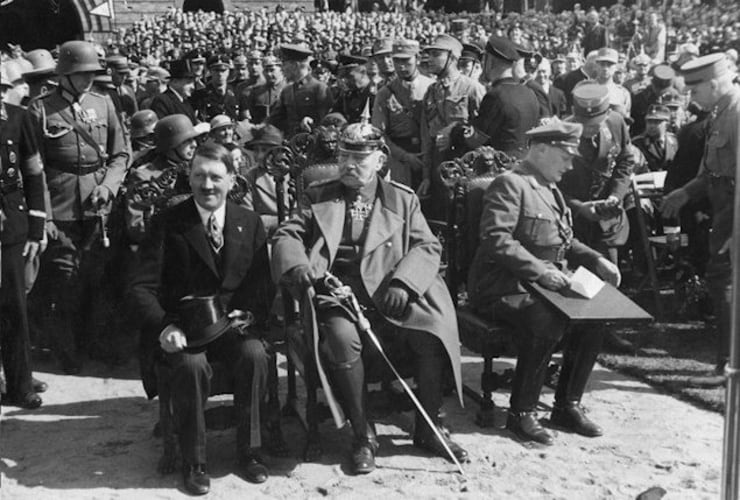Díky za článek 
30.1. 1933 - Hitler became Reich Chancellor
Categories: Personalities , Second World War , Calendar
The election of Adolf Hitler as Reich Chancellor on 30 January 1933 marked a major turning point in events in Germany, but also abroad. After taking power, the Nazis immediately began to settle old scores, and tens of thousands of Jews fled abroad.
Hitler was appointed Reich Chancellor by then German President Paul von Hindenburg. The leader of the NSDAP took advantage of the economic crisis that was plaguing the country and the population was frustrated. They also could not come to terms with the outcome of World War I and the peace terms of the Treaty of Versailles, something that even Hitler himself could not get over.
He made good use of the fact that he was a charismatic speaker and presented his ideas about the new Germany wherever possible. Already in the elections of July 1932 the Nazis won 230 seats and became the strongest party in the Reichstag. Hindenburg, intimidated by Hitler's growing popularity and his boisterous supporters, initially refused to appoint the NSDAP leader as chancellor. Instead, he chose General Kurt von Schleicher, but he was unable to form a stable government.
Hindenburg thus appointed Hitler as Reich Chancellor at the end of January 1933, marking a major turning point at home and eventually abroad. Hitler's plan was clear, he wanted to make Germany a great power. He began to take action immediately, deciding, for example, to rapidly expand the state police. He put Hermann Göring in charge of a new 'security' force, composed entirely of Nazis who were wholeheartedly committed and ready to crush opposition at any time.
Immediately after gaining power, the victorious National Socialists also began to settle old scores with political opponents and Jews. The movement, characterized by activist violence, could not be stopped. Members of the SA and the SS dragged their victims to places in barracks, breweries, factories, waterworks and other places....ships, putsches and restaurants, which were used for torture and murder. These people were subjected to constant, horrific torture. Jews had to endure intimidation and attacks by SA thugs. Jewish lawyers and doctors were forbidden to practice.
40,000 Jews fled Germany
The foreign press commented very negatively on the rampage, especially in Berlin, but the criticism did not stop Hitler and his troops. On the contrary, he and Goebbels used the negative reaction as an excuse for a nationwide boycott in April 1933, when a demonstration was staged, presented as a form of self-defence against the Jewish population.
"In 1933, forty thousand Jews fled Germany in the largest exodus that had taken place before 1938. Among them were many young, free people, as well as the politically threatened and the wealthy, because this exodus into the unknown was a major setback for the elderly, families withand business owners who had spent years building up a clientele," says Michael Burleigh in his book describing the history of the Third Reich.
But some simply could not imagine, for cultural reasons, swapping the comfortable life in Berlin or Vienna, for example, for the gloomy streets of London in the 1930s. "The optimists believed that the situation would calm down and Hitler would be consigned to the dustbin of history. They consoled themselves with the illusion that the constitutional norms were still in place and they were still living under the rule of law that Jews had once helped create. It was simply said, "A dog that barks does not bite!" writes Michael Burleigh.

Michael Burleigh: A New History of the Third Reich, www.history.com, www.dw.com
The article is included in categories:





